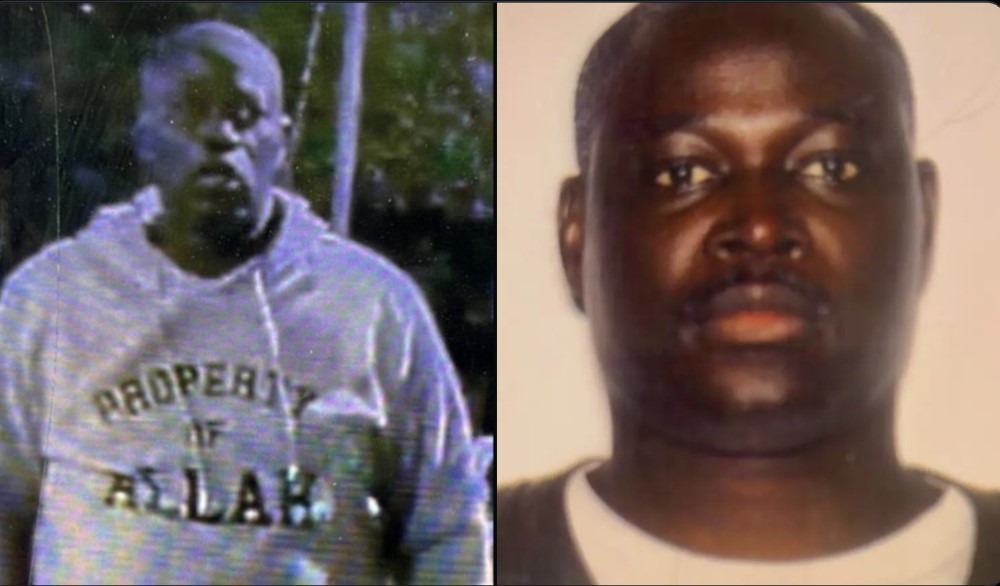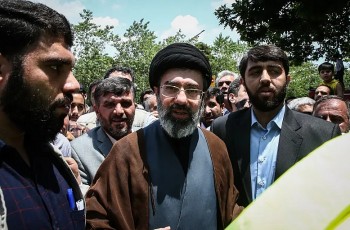Will President-Elect Trump Serve Jail Time?
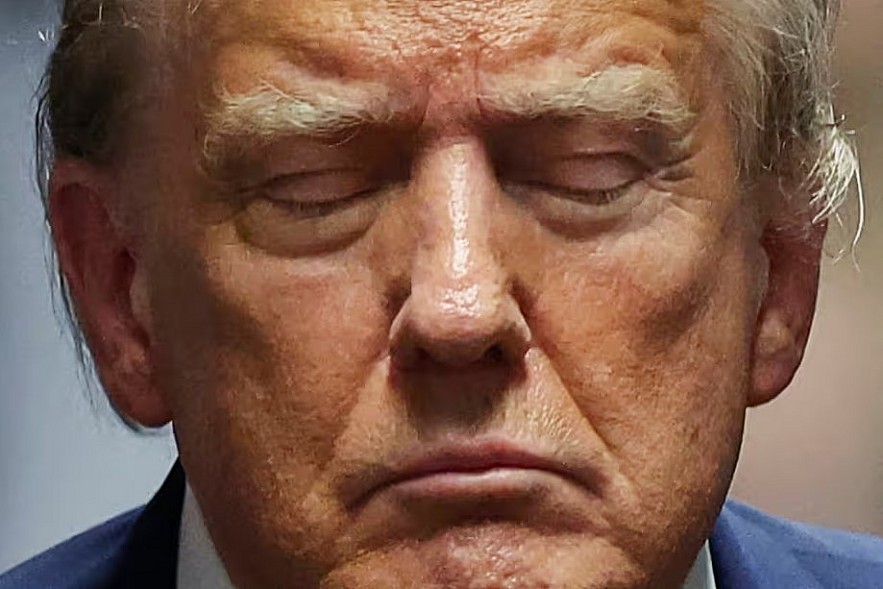 |
| Judge Upholds Trump’s Sentencing in Hush Money Case but Signals No Jail Time |
Donald Trump, who is scheduled to take office as the 47th president of the United States on January 20, 2025, is facing a significant legal challenge. Convicted on May 30, 2024, of 34 felony counts of falsifying business records, he is the first U.S. president to be found guilty of criminal charges. These convictions stem from hush money payments made during the 2016 election campaign to silence allegations of extramarital affairs.
Despite the severity of the charges, Trump will not face jail time—a decision that has sparked heated debate across the political and legal spectrum.
The Case Against Donald Trump: A Breakdown
The case revolves around payments made to adult film star Stormy Daniels and others during Trump’s 2016 campaign. Daniels alleged she had a sexual encounter with Trump in 2006, claims Trump has consistently denied. To prevent her story from surfacing during the election, Michael Cohen, Trump’s personal attorney at the time, paid Daniels $130,000 in hush money. Prosecutors argued that Trump reimbursed Cohen and falsified business records to cover up the payment, disguising it as legal expenses.
The Manhattan jury found Trump guilty on all 34 counts, with evidence showing the payments were part of a broader scheme to protect his candidacy. Prosecutors highlighted that these actions were not isolated but part of a concerted effort to manipulate public perception by suppressing damaging information.
This verdict marks a historic moment in U.S. history, as Trump became the first former president—and now president-elect—to be convicted of criminal charges.
Judge Juan Merchan’s Sentencing Decision
On January 10, 2025, Judge Juan Merchan will sentence Trump in Manhattan’s State Supreme Court. However, in a written decision, the judge stated he will impose an unconditional discharge, meaning Trump will not face jail time, fines, or probation. While the conviction remains on record, this sentencing option effectively spares Trump any direct punishment.
Merchan acknowledged that incarceration could have been on the table given the 34 felony counts, but practical and political considerations played a significant role in his decision. The judge noted that Trump’s position as president-elect posed unique challenges. “While this court has found no legal impediment to sentencing a president-elect, it is incumbent upon us to consider the broader implications,” Merchan wrote.
Why No Jail Time?
Several factors influenced Judge Merchan’s decision to opt for an unconditional discharge:
-
The Practicality of Jailing a President-Elect
Prosecutors and the defense both conceded that incarcerating a president-elect posed logistical and constitutional challenges. Trump’s upcoming responsibilities, including the presidential transition and inauguration, would make imprisonment a near-impossible scenario.
-
Balancing Justice and Governance
Merchan emphasized the importance of upholding the jury’s verdict while ensuring Trump could govern without encumbrances. “This court must weigh the sanctity of the jury verdict against the practical reality of the defendant’s impending assumption of office,” he wrote. Jail time, he concluded, would be impractical and could undermine the presidency’s stability.
-
Public Confidence in the Rule of Law
While Trump argued the conviction should be dismissed, Merchan firmly rejected this notion, stating it would cause “immeasurable damage” to public confidence in the judicial system. By maintaining the conviction while sparing Trump from incarceration, the judge sought to balance accountability with pragmatism.
Legal and Political Implications
Trump’s conviction raises critical questions about the rule of law and the responsibilities of elected officials. His supporters argue that the charges are politically motivated, while critics see the case as a landmark example of holding even the most powerful individuals accountable.
Prosecutors at trial presented evidence that the falsified records were part of a broader scheme to influence the 2016 election. They linked Trump’s actions to payments not only to Daniels but also to former Playboy model Karen McDougal and a Trump Tower doorman who claimed Trump had fathered a child with a housekeeper. These payments, they argued, were aimed at preventing unflattering stories from surfacing before the election.
Despite the conviction, Trump remains defiant. His spokesman, Steven Cheung, dismissed the case as a “witch hunt” and vowed to continue fighting. “President Trump will continue fighting against these hoaxes until they are all dead,” Cheung said in a statement.
The Debate Over Presidential Immunity
Trump’s legal team argued that his status as president-elect should shield him from prosecution, citing presidential immunity. However, Judge Merchan dismissed these claims, stating that presidential immunity does not apply to actions taken before assuming office.
“This court finds no precedent supporting the dismissal of charges against a president-elect based on the concept of presidential immunity,” Merchan wrote. He further noted that granting such immunity would undermine the rule of law.
What Does an Unconditional Discharge Mean?
An unconditional discharge allows a defendant to avoid jail time and other penalties as long as they remain free of further legal trouble. In Trump’s case, this means he will not face any direct punishment unless he is rearrested for another offense. The conviction remains part of his criminal record, preserving the jury’s verdict.
While some critics see this as a lenient outcome, others view it as a pragmatic solution that upholds the conviction without disrupting Trump’s ability to govern.
The First Convicted President-Elect
Trump’s conviction represents a historic moment: he is the first U.S. president to enter office with a criminal record. This development raises questions about how the legal system interacts with political figures and whether such convictions influence public trust in democratic institutions.
For Trump, the legal challenges are far from over. He still faces investigations in Georgia over attempts to overturn the 2020 election and federal probes into classified documents. However, these cases are unlikely to proceed during his presidency, given the Department of Justice’s tendency to defer investigations involving sitting presidents.
 |
| Adult film actress Stormy Daniels |
Looking Ahead
As Trump prepares to take office on January 20, his legal troubles will undoubtedly cast a long shadow over his presidency. The decision to spare him jail time reflects the complexities of applying justice to a sitting or incoming president, balancing the need for accountability with the practical realities of governance.
While Trump avoids jail, the ramifications of his conviction remain significant. The case underscores the importance of preserving the rule of law and ensuring that no individual, regardless of their position, is above accountability. As Trump steps into his second term, the question lingers: can he govern effectively with a felony conviction, or will his legal battles define his presidency? Only time will tell.
34 Felony ChargesOn May 30, a jury found Donald Trump guilty of 34 felony charges of falsifying business records, tied to his reimbursement of attorney Michael Cohen for a $130,000 payment made to adult film actress Stormy Daniels. The payment, made during the final stretch of the 2016 presidential campaign, aimed to buy Daniels' silence about an alleged sexual encounter with Trump at a 2006 golf tournament when she was 27 and he was 60. This verdict made Trump the first U.S. president to be convicted of criminal charges. Prosecutors presented evidence during the trial suggesting that the payment was part of a larger scheme to protect Trump’s public image and electoral prospects. This scheme also included payoffs to former Playboy model Karen McDougal, who claimed a yearlong affair with Trump, and a Trump Tower doorman who alleged that Trump fathered a child with a housekeeper. These efforts, prosecutors argued, were intended to suppress damaging stories and influence the 2016 election. This criminal case is the only one of four brought against Trump after his presidency that has gone to trial. Following Trump’s recent electoral victory, the Department of Justice dismissed federal cases accusing him of conspiring to overturn the 2020 election results and mishandling classified documents critical to national security, which were allegedly stored insecurely at his private properties. Meanwhile, a separate criminal investigation in Georgia related to alleged election interference remains pending but is unlikely to proceed anytime soon due to the case’s significant backlog. |
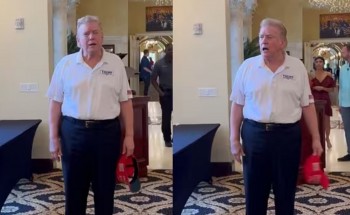 Trump’s ‘New Hairstyle’ is Actually the Same 2019 ‘Hat Hair’ Trump’s ‘New Hairstyle’ is Actually the Same 2019 ‘Hat Hair’ President-elect Donald Trump’s ‘New Hairstyle’ is Actually the Same 2019 ‘Hat Hair’ That Elicited Hilarious Comparisons to Pop Culture Icons. |
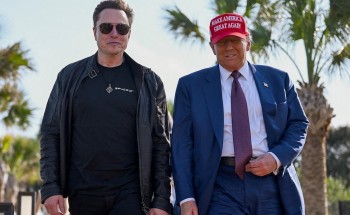 Is Donald Trump just the vice President to 'President Elon Musk'? Is Donald Trump just the vice President to 'President Elon Musk'? Some even dubbing Trump as "vice president" to "President Musk." |
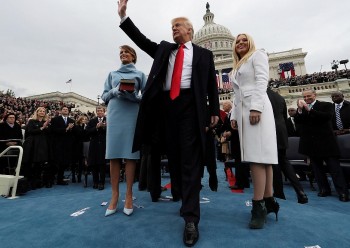 Trump's Inauguration Day 2025: Time, Date, Events, and Streaming Trump's Inauguration Day 2025: Time, Date, Events, and Streaming On January 20, 2025, Donald Trump will officially be inaugurated as the 47th President of the United States, marking his second, non-consecutive term in office. |





